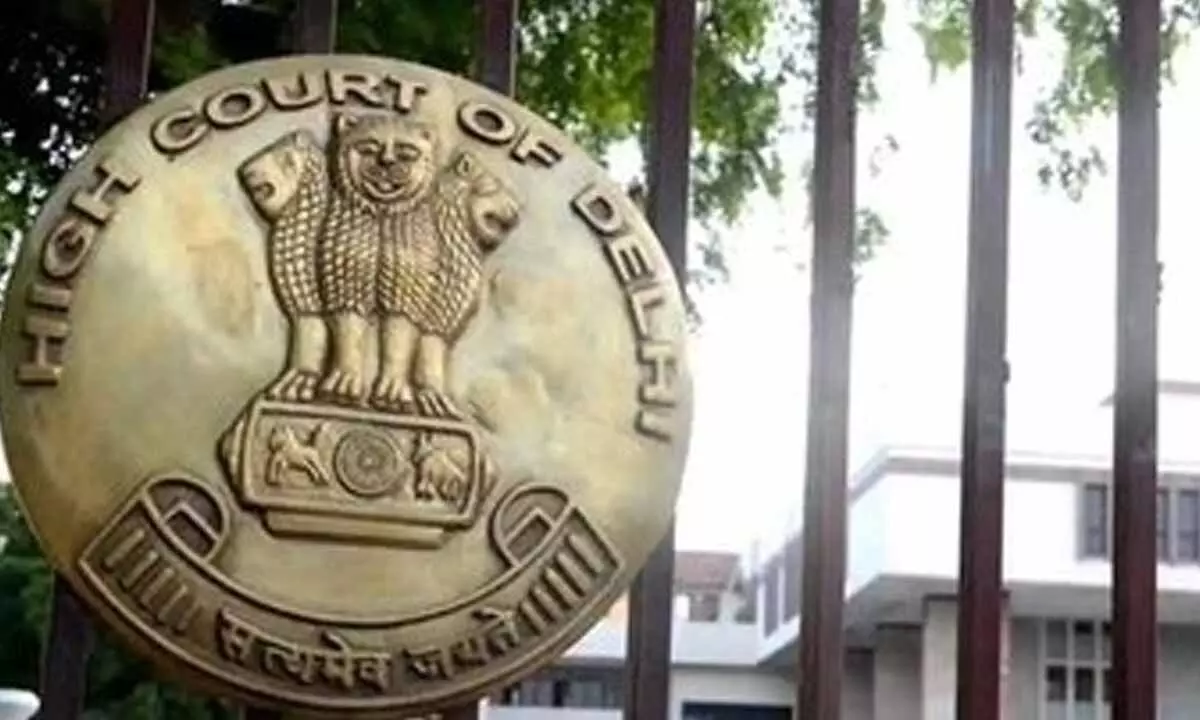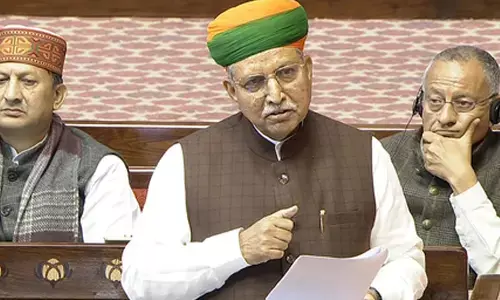Delhi HC upholds order rejecting plea against publishing novelisation of Satyajit Ray's 'Nayak'
Share :

Delhi High Court
The Delhi High Court has upheld a single-judge order rejecting the plea – moved by the producers of the 1966 Bengali film 'Nayak', R.D.B and Co. (HUF), seeking injunction against publishing house HarperCollins from printing the novelisation of the film's screenplay.
New Delhi: The Delhi High Court has upheld a single-judge order rejecting the plea – moved by the producers of the 1966 Bengali film 'Nayak', R.D.B and Co. (HUF), seeking injunction against publishing house HarperCollins from printing the novelisation of the film's screenplay.
Directed by iconic filmmaker late Satyajit Ray, 'Nayak' starring Uttam Kumar and Sharmila Tagore in lead roles was Ray's second entirely original screenplay after Kanchenjungha (1962).
Justice C. Hari Shankar, while rejecting the plea, had said that the first owner of copyright in 'Nayak' was Ray who wrote the screenplay for the movie, and he had the right to novelise the screenplay.
However, consequent on his demise, that right could be assigned to his son (Sandip Ray) and others on whom the right devolved, the court had held.
A division bench of Justices Yashwant Varma and Tushar Rao Gedela dismissed the appeal against Justice Shankar's order passed on May 23.
The bench said that the copyright in the screenplay of the movie would clearly have to be recognised to vest in the author of the literary work, i.e. Satyajit Ray.
"While the plaintiff / appellant may have been the producer of the film 'Nayak', it could not have possibly claimed a supervening right in the screenplay in light of the clear language and intent of Section 13(4) of the Act," the court said.
It added that once it is recognised that the copyright existed in the author of the screenplay, any right which the plaintiff HUF could claim in the cinematographic work would not have either impacted or diluted Ray's right in the screenplay.
"For all aforesaid reasons, we find no merit in the challenge raised to the impugned order. The appeal fails and shall stand dismissed," the court held.
The single-judge court had said: "As the first owner of the copyright in the screenplay of the film 'Nayak', therefore, the right to novelise the screenplay also vested in Satyajit Ray. That right could be assigned by him - and, consequent on his demise, by his son and others on whom the right devolved - on any other person, under Section 18(1)44 of the Copyright Act."
"The assignment of the right to novelise the screenplay of the film 'Nayak', by Sandip Ray and the SPSRA, in favour of the defendant is, therefore, wholly in order and in accordance with the provisions of the Act. On the other hand, the assertion, by the plaintiff, of the copyright in the screenplay of the film 'Nayak' is unsupported by any provision in the Act and is, in fact, in violation of the provisions which have been referred to hereinabove," the court had said. R.D.B. and Co. had approached the high court stating that Ray was commissioned by R.D. Bansal (of R.D.B. and Co.) to write the screenplay of the film. The novel was published by HarperCollins on May 5, 2018 after it was novelised by Bhaskar Chattopadhyay.
"The plaintiff claimed that the novelisation of the screenplay by Bhaskar Chattopadhyay and the publication of the novel by the defendant, constituted infringement of their copyright within the meaning of Section 51 of the Copyright Act," the court had noted.
"Proviso (b) to Section 17, in its plain terms, refers, insofar as cinematograph films are concerned, with the making of a cinematograph film for valuable consideration at the instance of any person," the court had said.
Justice Shankar had held that Ray, as the author of the screenplay of 'Nayak', was the first owner of the copyright in the said film.
"Therefore, the contention that the producer is the owner of the copyright of the screenplay cannot be accepted," the court ruled.
"For the aforesaid discussion, the plaintiff has no right whatsoever, in law, to injunct the defendant from novelising the screenplay of the film 'Nayak'," the court noted.
















